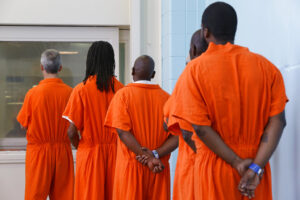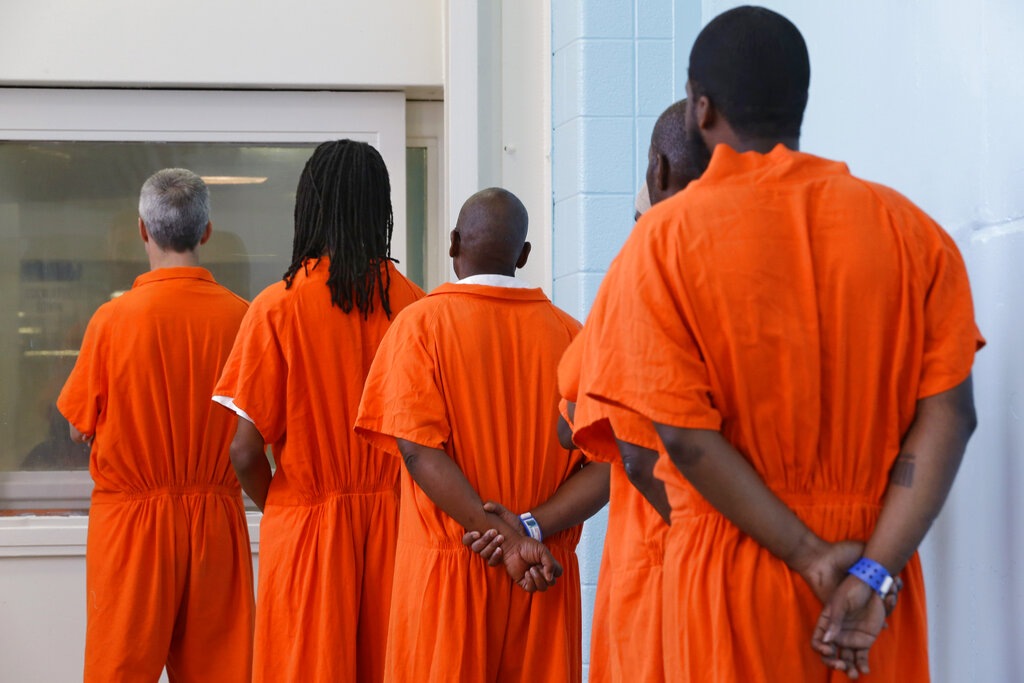WASHINGTON – Prisoners in the nation’s capital voted in the presidential election for the first time following a rare restoration of prisoners’ voting rights in 2020. Many voted for President-elect Donald Trump, some because they believe he will be more lenient on prison sentences.
424 incarcerated people voted in the District of Columbia Jail, exercising a right banned in all but two states: Maine and Vermont. Washington’s incarcerated voters made up more than a quarter of the votes in Precinct 80, which post-election data revealed to be Washington’s most pro-Trump neighborhood by far: Trump won 25% of Precinct 80, compared to 7% city-wide.
Rare in Washington, support for Trump is commonplace in the incarcerated population and reflects shifts in voting trends in the population at large. A pre-election survey of 54,000 incarcerated people, 82% of them men, found 60% of white respondents and 30% of Black respondents supporting Trump. Nationwide, Trump won 30% of Black male voters under the age of 45, doubling his 2020 vote share in a demographic that Democrats have long counted on to build an election-winning coalition.
While Trump has had a long and complicated history with racial relations, a number of Black and Latino voters this year cited the border, inflation, and Trump’s promises to immediately solve both, as reasons for their shifting vote. Behind bars, prisoners were swayed by other policy matters.
Writing from D.C. Jail through an enclosed messaging app unironically named “Getting Out,” Marcus L. said he voted for Trump because he will cut violent crime sentencing by 65%, a claim that could and would not be verified. “I hope he keeps his promise,” wrote Marcus.
Other prisoners think Trump, the first president to be convicted of a felony, could find a common ground. “Trump has a connection to the people that are locked up,” said Tyrese W., 25, speaking by phone from D.C. Jail. Tyrese, who has been incarcerated on and off since he was 14, said he intended to vote for Trump. “He understands that everybody has their mishaps, and crime is going to be crime, but at the end of the day you should have a second chance.”

Good information is in shortage and bad information rampant in prison, according to Engagement Editor of The Marshall Project, Nicole Lewis.
“Imagine if you don’t have consistent access to news, and you can’t fact check claims, and all you hear is people saying ‘Trump’s letting people out, Trump’s sending people home.’ You would be really interested in seeing him elected because you think that’s in your self-interest. We do see a lot of that,” said Lewis.
Lewis cited the prisoners moved to home confinement under the 2020 CARES Act, now numbering more than 12,000, Trump’s work with Kim Kardashian on criminal justice reform, and his late-term pardons as reasons why many incarcerated people support him. But many don’t know Trump restarted the federal death penalty and promises to expand it to people convicted of drug crimes, she added.
There is a logic to prisoners’ identifying with Trump, who has 34 felony convictions, according to David Redlawsk, a professor at the University of Delaware who researches the psychology of voter decision-making.
“Americans in particular put a lot of stock in this idea that the candidate is like me,” he said, also warning that misinformation is a significant and growing factor in voter decision-making.
“January 6 was a set-up by members of the Democrat party to keep Trump off the ballot and label his supporters [as] terrorists,” said an anonymous prisoner speaking by phone from D.C. Jail, who claimed to be awaiting sentencing for crimes related to the January 6, 2021 riot on Capitol Hill. He said he still supports Trump and expects to be pardoned soon.
For Tyrese, he’s hopeful Trump’s second term will bring more second chances – jobs, houses, rehabilitation programs — for people behind bars.








